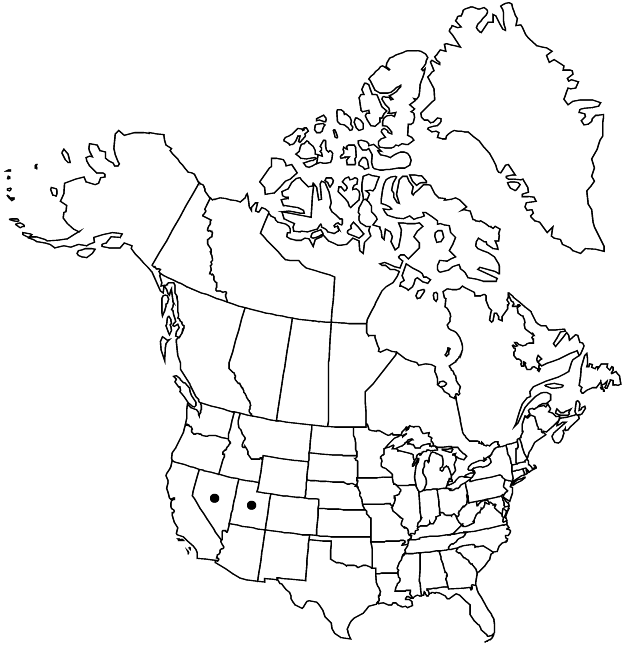Silene nachlingerae
Brittonia 37: 344, fig. 1. 1985.
Plants perennial; taproot stout; caudex usually branched, woody, producing tufts of basal leaves and 1–several flowering shoots. Stems subscapose, with (1–)2–3(–4) pairs of leaves, 6–25 cm, much reduced above base, retrorsely puberulent, eglandular. Leaves 2 per node; basal blades oblanceolate, spatulate, 1.4–4 cm × 2–5 mm, base ciliate, apex acute, subglabrous to retrorse-puberulent; cauline shortly connate proximally, blade narrowly oblanceolate to linear-lanceolate, 0.5–3.5 cm × 1–2 mm, apex purple tinged, retrorse-puberulent, often sparsely so. Inflorescences 1–3(–4)-flowered, open. Pedicels erect, 1–4 times longer than fruiting calyx, retrorsely puberulent, without glandular hairs. Flowers: calyx prominently 10-veined, cylindric, becoming narrowly ovoid, not inflated, not contracted proximally around carpophore, 6–11.5 × 3 mm in flower, broadening to ca. 5 mm in fruit, membranous, uniformly puberulent, without glandular hairs, veins parallel, green, with pale commissures, lobes triangular, 1–1.5 mm, margins narrowly membranous, apex purple-tipped; corolla white, usually flushed with pink or purple towards apex, ligulate to ± oblanceolate, slightly longer than calyx, not clearly differentiated into claw and limb, unlobed to notched, auricles and appendages absent; stamens equaling calyx; styles 3, included in calyx. Capsules ellipsoid-ovoid, slightly longer than calyx, opening by 6 ascending teeth; carpophore ca. 1 mm. Seeds rust colored, reniform, 0.7–1 mm, margins papillate; papillae large, inflated.
Phenology: Flowering summer.
Habitat: Alpine limestone ridges and slopes
Elevation: 2500-3000 m
Discussion
Of conservation concern.
Silene nachlingerae is a small version of S. invisa, although the latter species has glabrous leaves. Both have the characteristic inflated (balloonlike) papillae around the outer edge of the seed.
Selected References
None.
